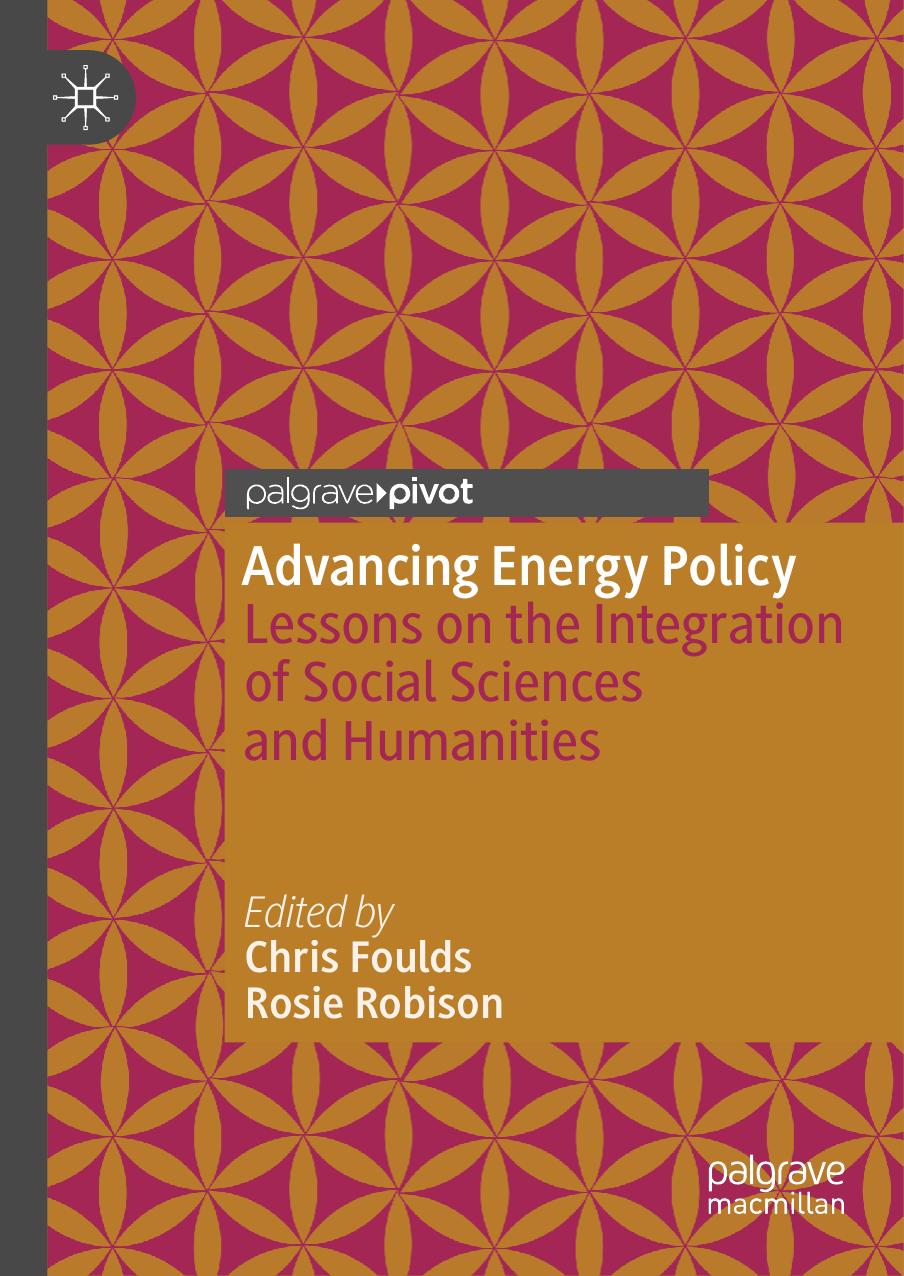Advancing Energy Policy by Chris Foulds & Rosie Robison

Author:Chris Foulds & Rosie Robison
Language: eng
Format: epub, pdf
ISBN: 9783319990972
Publisher: Springer International Publishing
6.3.2 How Can Understanding MoP Energy Decision-Making Help Accelerate the Rate of Energy Retrofit?
6.3.2.1 Theories of Change
In addition to awareness of how energy decisions are taken in the MoP setting, it is also important to consider how decision outcomes can be aligned with the ambitions of the European Energy Union. Explaining collective action, that is, how groups take action to achieve a common objective when there may be misalignments between individual and collective incentives, has been a challenge within several branches of the Social Sciences. Amongst various theories of change that may be apposite to the MoP energy context, both Nudge Theory and Social Marketing approaches were discussed at the workshop, whilst noting that the interaction between the role of the individual owner and the collective introduces complexity. Nudge Theory considers that suggestion or ‘choice architecture’ may be the most effective way of influencing decision-making behaviour. A policy tool of ‘green nudges’ is beginning to emerge which recognises specific issues in the environmental context, for example, the non-economic nature of perceived benefits from energy efficient behaviour, and the challenges of persuading individuals who are sceptical about the existence of climate change of any benefits to this behaviour. A Social Marketing approach concentrates on identifying the barriers to energy efficient behaviour or decisions, such as bystander effect factors and mental models/folk theories (incorrect but tenacious assumptions about the type of behaviour which is efficient), and employing techniques to overcome them. However, these theories or change mechanisms have been developed primarily in the context of habitual behaviour change, rather than investment decisions.
Having a ‘champion’ within the group to spearhead collective action can be powerful. Such leaders may be viewed as ‘spokespersons’ of energy transition from the perspective of the Actor Network Theory (Akrich et al. 2006) or as innovative ‘in-group’ members from the perspective of Social Identity Theory. Case study evidence suggests a champion can play a critical role in relation to MoPs where energy renovations have been undertaken (Brisepierre 2011; Le Garrec 2014). Empirical sociological research in France has found that energy improvement decisions in MoPs are often initiated by leaders or groups of leaders living within the building who persuade the wider community to take action. This confirms previous observations made by sociologists who studied French condominiums with the strategic analysis tools provided by the Sociology of Organised Action (Crozier and Friedberg 1977; Golovtchenko 1998; Lefeuvre 1999). From these studies, it is clear that collective action in a condominium depends on the skills of the actors and the capacity for building consensus.
In taking this aspect of our research agenda forwards, a first step would be to identify more case study examples of MoPs in which retrofits have been carried out in order to identify the mechanisms at play in the decision-making process. This research would need to be open to a wide range of theoretical frameworks, not necessarily just those discussed in our workshop.
Download
Advancing Energy Policy by Chris Foulds & Rosie Robison.pdf
This site does not store any files on its server. We only index and link to content provided by other sites. Please contact the content providers to delete copyright contents if any and email us, we'll remove relevant links or contents immediately.
International Integration of the Brazilian Economy by Elias C. Grivoyannis(109056)
The Radium Girls by Kate Moore(12013)
Turbulence by E. J. Noyes(8040)
Nudge - Improving Decisions about Health, Wealth, and Happiness by Thaler Sunstein(7689)
The Black Swan by Nassim Nicholas Taleb(7104)
Rich Dad Poor Dad by Robert T. Kiyosaki(6602)
Pioneering Portfolio Management by David F. Swensen(6283)
Man-made Catastrophes and Risk Information Concealment by Dmitry Chernov & Didier Sornette(6001)
Zero to One by Peter Thiel(5784)
Secrecy World by Jake Bernstein(4739)
Millionaire: The Philanderer, Gambler, and Duelist Who Invented Modern Finance by Janet Gleeson(4462)
The Age of Surveillance Capitalism by Shoshana Zuboff(4274)
Skin in the Game by Nassim Nicholas Taleb(4235)
The Money Culture by Michael Lewis(4196)
Bullshit Jobs by David Graeber(4177)
Skin in the Game: Hidden Asymmetries in Daily Life by Nassim Nicholas Taleb(3987)
The Dhandho Investor by Mohnish Pabrai(3757)
The Wisdom of Finance by Mihir Desai(3727)
Blockchain Basics by Daniel Drescher(3574)
